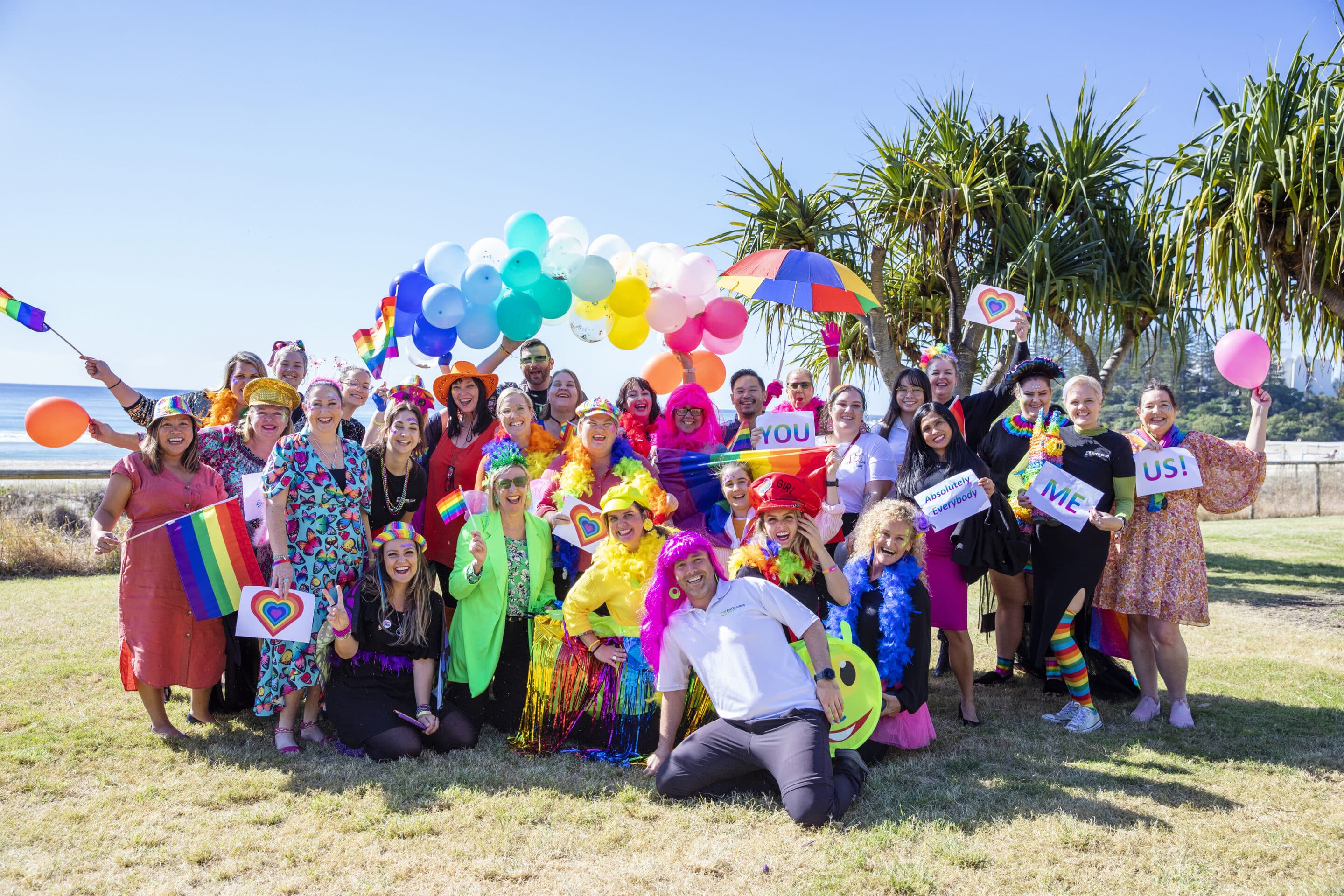
“We should just be individuals who are in relationships with other individuals”
In honour of Pride Month this June, we interviewed Feros Care employees from the LGBTQIA+SB community. Here, Joy shares her story.
Joy* “came out” as a lesbian when she was 32. But the whole concept of “coming out” feels archaic to Joy, whose pronouns are she/they.
“We should just be individuals who are in relationships with other individuals,” she says. “Why is there such an emphasis on ‘coming out’? What did I ‘come out’ from? Technically, my mother. But that doesn’t make me a lesbian!”
Nonetheless, telling her family and friends was a big deal for Joy. “My mum is homophobic,” she explains. “My family doesn’t support me, so I no longer have contact with them. I think that with the spotlight on the community, the negativity is higher. But I don’t really notice or get bothered by what others think.”
While things are slowly starting to change, Joy believes many people in the community still feel unsupported, alone or lost when they come out. “Losing friends and family members because they don’t agree or understand is still common,” she says.
Joy has some words of advice for people who want to support friends and family members in the LGBTQIA+ community. “Accept them for however they wish to identify,” she says. “Lend an ear if they need it, educate yourself and stand with them not against them. Provide support in any way you can and love them the same as you did before they told you of their preferences.”
Being part of a supportive organisation like Feros Care means the world to Joy. “Having a Pride Support Network means that we have a voice if it’s needed. I’m not one to stand out and make a scene if it’s not necessary, but an organisation should be supportive of all in any manner possible.
“My difficulties lie with the red tape and barriers an organisation faces when trying to be an advocate, including the cost of getting a Rainbow Tick [which Feros Care is working towards]. If red tape and barriers are present, the organisation is deterred from progressing. That’s when a cohort doesn’t feel supported, individuals don’t feel valued and things look grim. It’s extremely important for an individual to feel supported and heard by their organisation. That’s how the organisation keeps its employees.”
*not her real name.